Opossum For Sale
The opossum, or possum, is the only marsupial in North America. They grow to be roughly the size of a domestic house cat and have long snouts and prehensile tails. Possums have really hardy immune systems and are resistant to rabies. They are also partially immune to the venom of many snakes, such as pit vipers, rattlesnakes, and cottonmouths. They are nocturnal and, therefore, more active at night.

Virginia Opossums
- Name: Just Wright Exotics
- Posted: 02/06/2026
- Phone: 4192508101
- Email: Email Seller
- Location: Ohio
- Website: www.beaconfirefarm.com/jweapp
Virginia opossums. Taking deposits for 2026 season. Text us!

Short Tailed Opossum STO
- Name: KyTy Critters
- Posted: 02/04/2026
- Phone: 816-344-8557
- Email: Email Seller
- Location: Missouri
- Website: http://www.kytycritters.com
We offer lifetime support for any questions or concerns you have!!!! For more information (including SHIPPING, AVAILABILITY, PHOTOS, PRICES & MORE) please visit our website: www.kytycritters.com Feel free to text us with any questions not answered by...
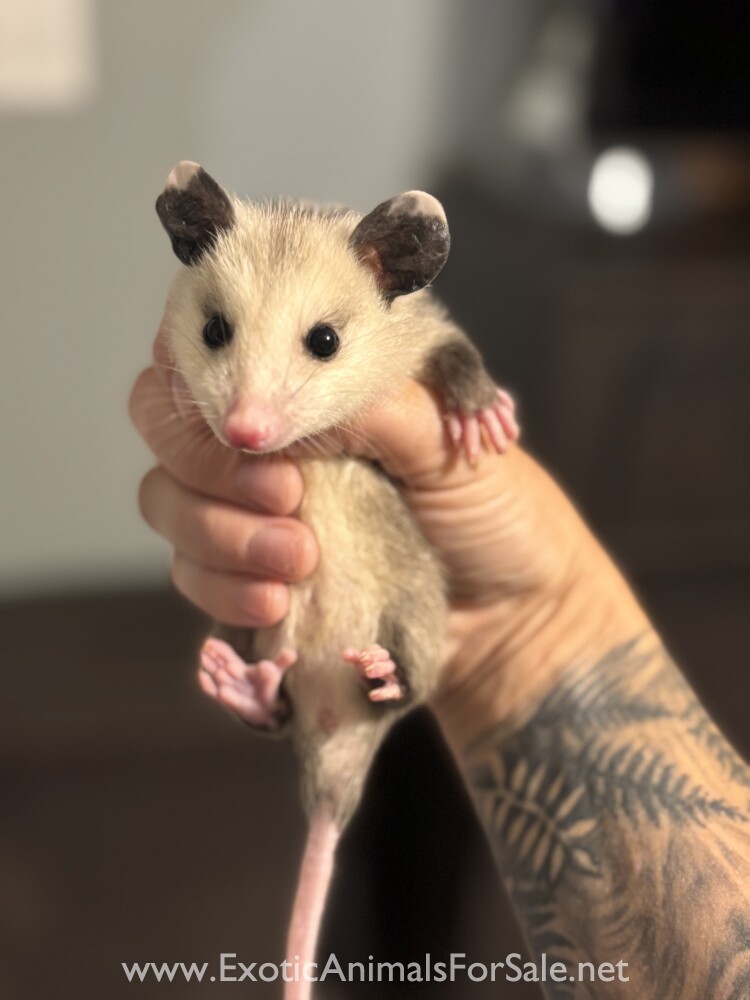
Virginia opossums
- Name: Jessica Lentz
- Posted: 01/30/2026
- Phone: 9317972310
- Email: Email Seller
- Location: Tennessee
Now accepting deposits for spring Virginia opossums. USDA and Twra facility.
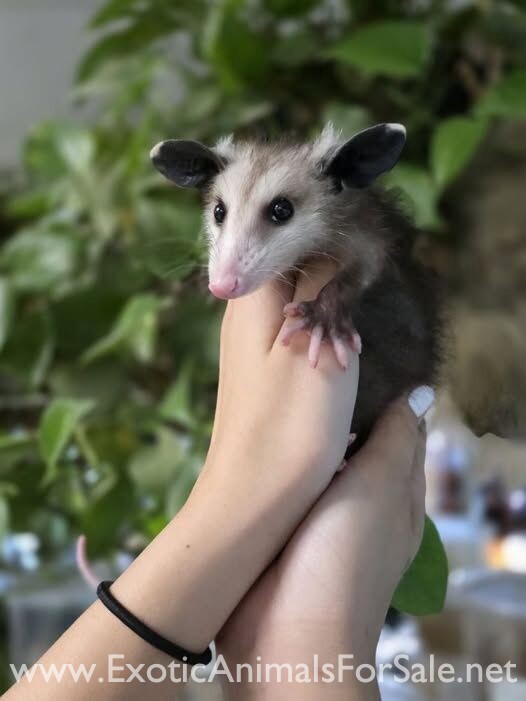
Virginia Opossums! Don't miss out!
- Name: Panhandle Exotics
- Posted: 01/23/2026
- Phone: 8505424410
- Location: Florida
- Website: www.PanhandleExotics.com
- Trusted Seller
If you're wanting an Opossum, now is the time to get on the list! These guys are only available in the spring & summer and we go in order of reservations. Reserve yours now for just half down! This guarantees you will get one this season....
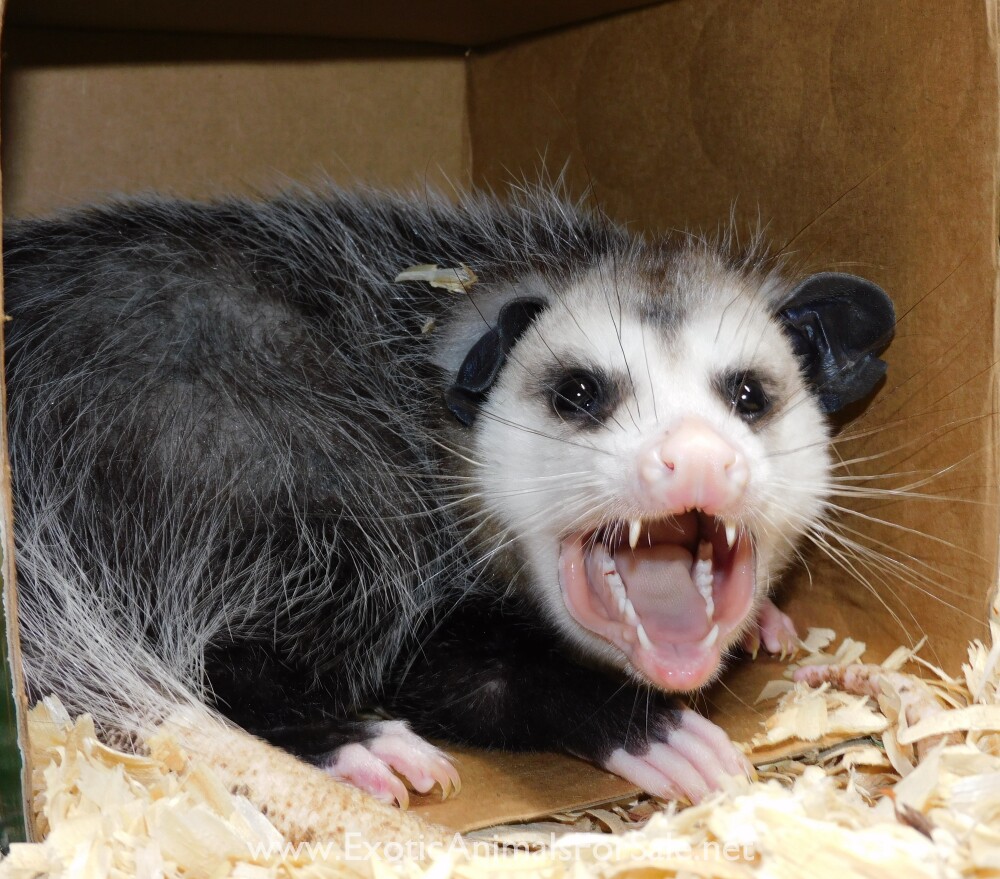
Virginia Opossums
- Name: Best Exotics LLC
- Posted: 01/05/2026
- Phone: 903-733-2398
- Email: Email Seller
- Location: Texas
- Website: www.bestexoticsllc.com
We had a pick up fall through and we have some Virginia opossums waiting for new enclosures. We have males, females, grays, and blacks. These are all babies that we produced. They are six to ten months old. You must have all required permits. The gra...
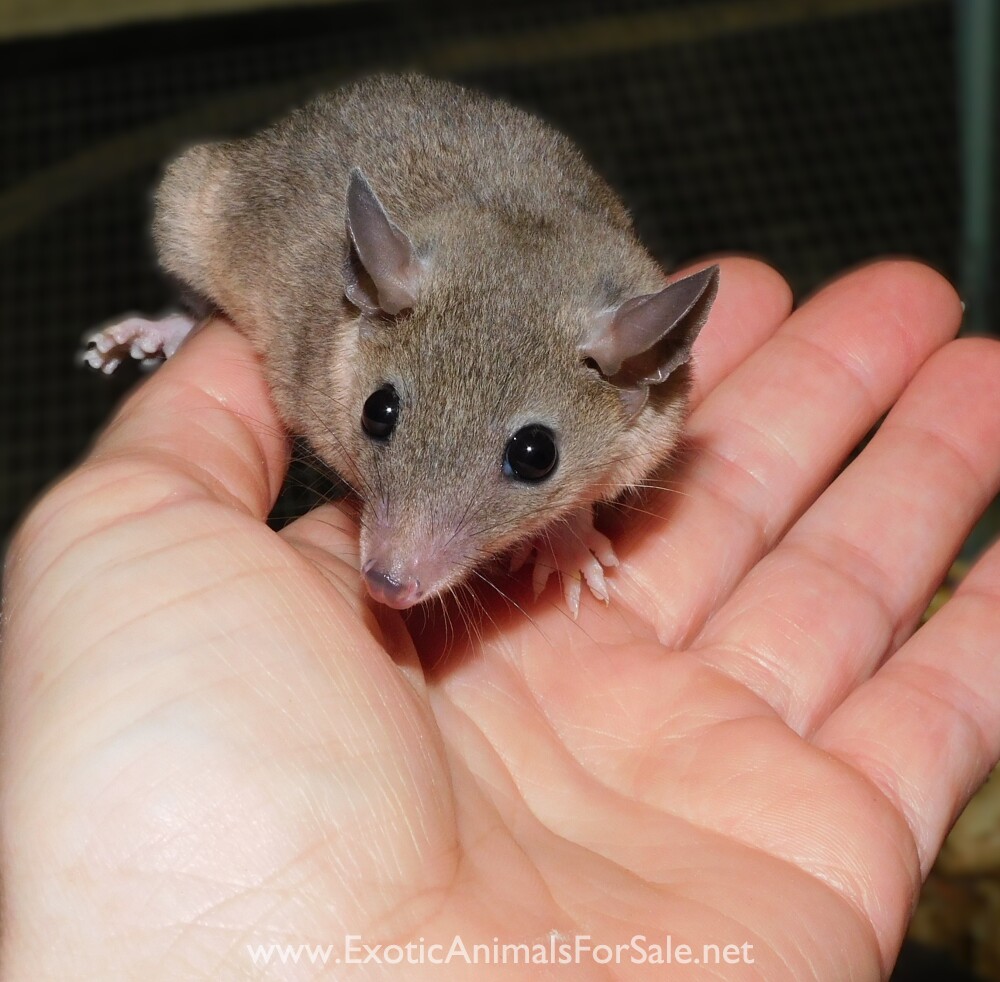
South American Short Tail Opossums
- Name: Best Exotics LLC
- Posted: 12/30/2025
- Phone: 903-733-2398
- Email: Email Seller
- Location: Texas
- Website: www.bestexoticsllc.com
We have male and female short tail opossums just weaned. They are $250 each plus transport. Shipping is via a private transporter and cost depends on your location. We are USDA licensed. Please visit our website to see all of our available animals. w...
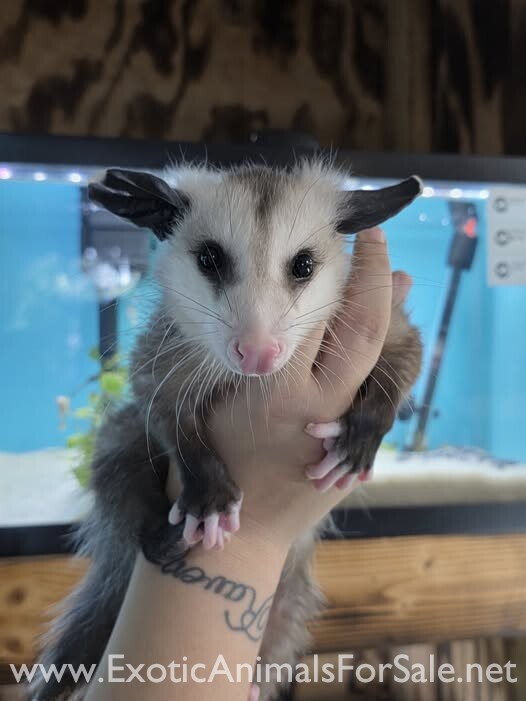
Virginia Opossums!
- Name: Panhandle Exotics
- Posted: 10/02/2025
- Phone: 850-542-4410
- Location: Florida
- Website: www.PanhandleExotics.com
- Trusted Seller
Virginia Opossums! Only a few left and on sale now! Info @ https://www.panhandleexotics.com/shopmammals.htm#!/Virginia-Opossum-last-ones-for-this-year/p/527326392 Ground transportation is available if needed! For information on the Florid...
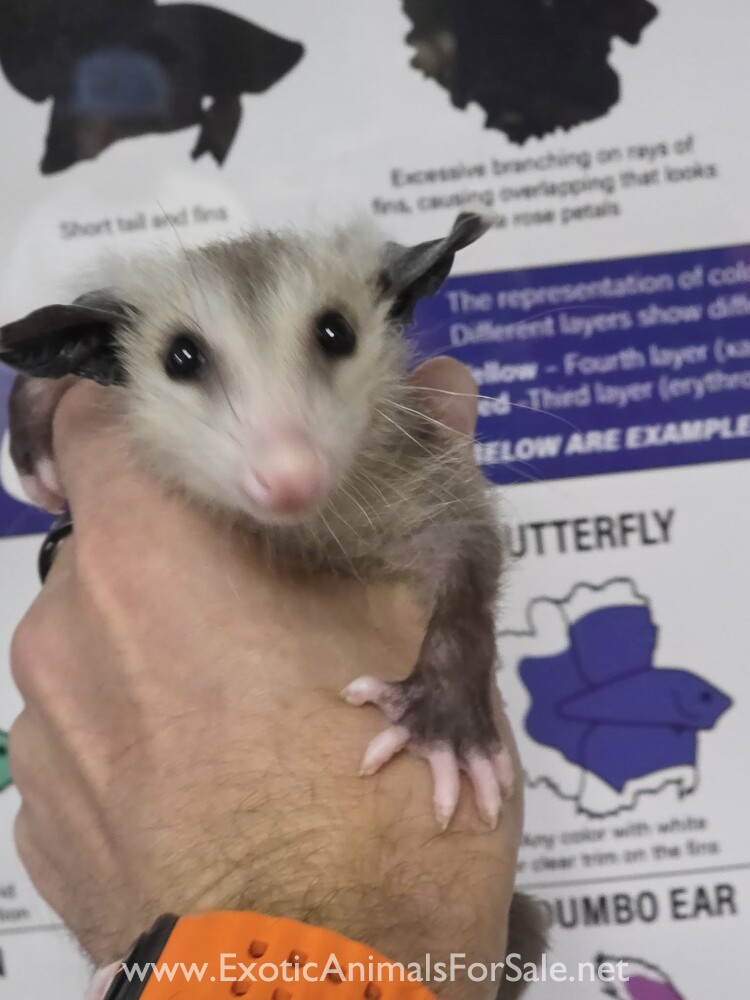
Opossums!
- Name: Panhandle Exotics
- Posted: 09/28/2025
- Phone: 850-542-4410
- Location: Florida
- Website: www.PanhandleExotics.com
- Trusted Seller
Opossums, in store and on sale! Only a few of these adorable babies left. These are the last available for this year, so don't miss out! Info @ https://www.panhandleexotics.com/shopmammals.htm#!/Virginia-Opossum-last-ones-for-this-year/p/5273263...
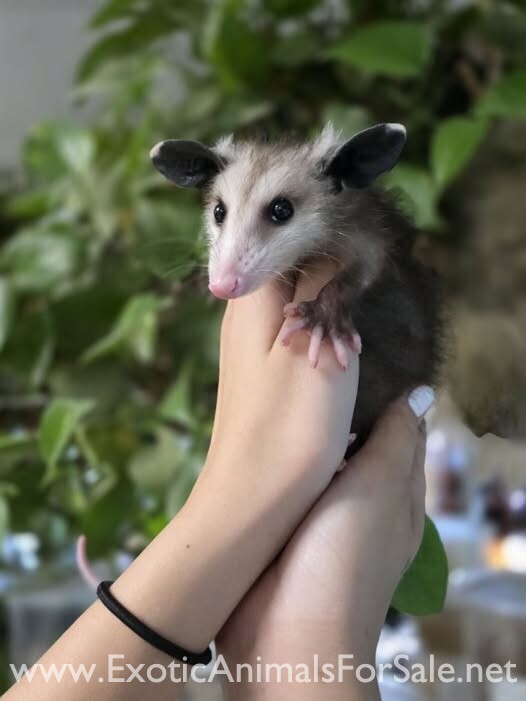
Virginia Opossums!
- Name: Panhandle Exotics
- Posted: 09/09/2025
- Phone: 850-542-4410
- Location: Florida
- Website: www.PanhandleExotics.com
- Trusted Seller
Virginia Opossums! Only a couple of babies left for this year! Info @ https://www.panhandleexotics.com/shopmammals.htm#!/Virginia-Opossum-last-ones-for-this-year/p/527326392 Ground transportation is available if needed! For information on t...
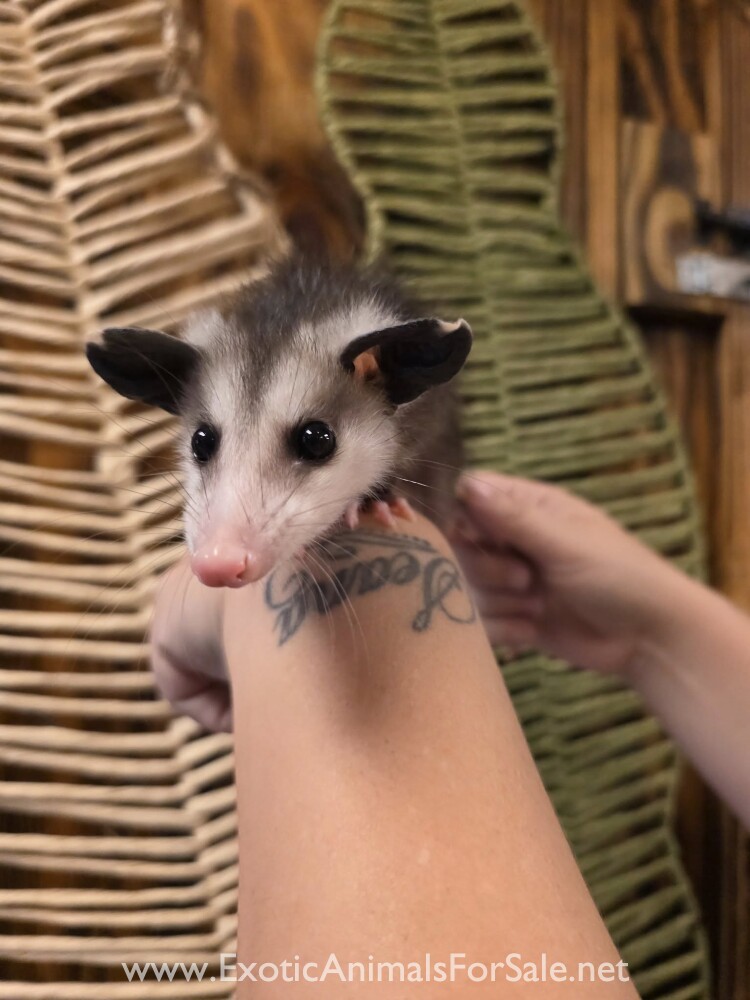
Virginia Opossums!
- Name: Panhandle Exotics
- Posted: 08/27/2025
- Phone: 850-542-4410
- Location: Florida
- Website: www.PanhandleExotics.com
- Trusted Seller
Virginia Opossums! We have a few extras available! Don't miss out! Info @ https://www.panhandleexotics.com/shopmammals.htm... Ground transportation is available if needed! For information on the FL permit, visit www.PanhandleExotics.com/permit.h...

Virginia Opossums!
- Name: Panhandle Exotics
- Posted: 06/21/2025
- Phone: 8505424410
- Location: Florida
- Website: www.PanhandleExotics.com
- Trusted Seller
Virginia Opossums! We are making two girls and one boy available! They will be ready for pickup tomorrow (Sunday 6/08/25)! Info @ https://www.panhandleexotics.com/shopmammals.htm#!/Virginia-Opossum-preorder/p/527326392 Ground transportation...
Opossum
Possums are flexible and adapt easily to various habitats. They can be found in woods, open fields, swampy areas, and near streams. For shelter, they use tree cavities, brush piles, the dens of other animals, and even attics, sheds, and garages.
What do Opossum Eat?
Possums are opportunistic omnivores but the ratio of plant to animals varied depending on the species. They eat frogs, rodents, birds, eggs, plants, fruit, and insects.
Possum Enrichment
For possums in captivity, the animals can be kept stimulated by hiding their favorite foods inside logs or hollow gourds. An apple hung on a string will encourage the animal to bob for apples.
Breeding Opossum
Like all marsupials, possums have a pouch, or a marsupium. After a fairly short gestation time, only about twelve to fourteen days, the offspring are born. The babies are extremely under-developed, though. They stay inside the pouch where they continue to develop and nurse from their mother. They are weaned and ready to leave the pouch between 70 and 125 days. The life span of a possum is between two and four years.







Comments